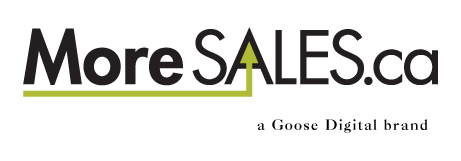Content marketing has the potential to radically change how companies approach lead generation and nurturing. With more consumers tuning-out or blocking advertisements, marketing professionals need to adopt a content-based approach that answers questions, addresses problems or opportunities, and delivers value pre-purchase. While many companies are coming around to the idea of content marketing, few incorporate sound search engine optimization (SEO) strategies, and this limits success.
Search engine optimization is the methodology and practice of using white-hat SEO strategies to help content be found for common search terms. When done well, search engine optimization can exponentially grow website traffic.
While search engine ranking factors change frequently (in some cases multiple times per day), there are several SEO best-practices marketers can deploy to give their content a boost. These are not “hacks” or quick fixes, rather strategies that will improve your content and website to deliver an exceptional experience to those engaging with your content. When these strategies are used consistently, they will lead to high ROI and several new leads flowing back to your sales team. This is a long-term strategy that takes time to show results, but is the most reliable and cost-effective way to generate new leads through digital marketing.
What is Search Engine Optimization? White Hat vs. Black Hat Strategies
There are a lot of misconceptions about what search engine optimization is because of how it’s evolved over time. Business leaders have seen the rise of digital marketing strategies, which includes SEO, and have witnessed the abuse of search engines. Due to the abuse of search engines during their formative years, many people believe that SEO is a way to bend the rules to rank first, and that there are easy ways to rank highly for valuable search terms.
Search engines such as Google consistently work to improve their algorithms and provide searchers with the best content possible. Modern SEO embraces this and uses best-practices to create and deliver value-adding resources.
Search engine optimization strategy incorporates so many tactics that it’s impossible to cover them all in one summary. It takes years of learning and practice to understand its best-practices fully, and requires a solid foundation to be successful. Consider viewing SEO through the following lenses to understand at a high-level what is required for a successful strategy.
White Hat vs. Black Hat SEO
White hat SEO refers to tactics that help build valuable resources which are optimized for display on search engine result pages (SERPs). Using a customer’s journey map and search engine data to find high-demand, low-competition topics to talk about is a great place to start and helps increase the chances of delivering value. From here, your business needs to be committed to investing the time and effort to create exceptional content.
White hat strategies are the only viable way to strengthen your positioning in search engines. Deploying best-practices helps to boost rankings and not be reactive to algorithm updates that can cause ranking positions to fluctuate. Using structured data, linking to other relevant website resources, and concentrating on a dynamic keyword strategy will help to rank highly and remain there.
White hat SEO is the only viable long-term strategy that will lead to search engine success. Black hat SEO may potentially lead to inflated search rankings, but causes more harm then benefit in the long-term.
Black hat SEO refers to tactics that attempt to artificially rank highly on search engine result pages. Keyword stuffing is the most widely used black hat strategy and focuses on using the same keyword or series of keywords in high amounts on a page so that when someone searches for that keyword, the black hat content/company will appear at the top of the rankings.
Black hat strategies are becoming increasingly difficult to implement successfully since search algorithm updates actively seek and punish content that attempts these tactics. Keyword repetition has become less important than matching content to a searcher’s intent and building a web of focus and supporting keywords that are related to each other.
Components of a Great SEO Strategy: On-Page and Technical SEO
Sticking with the idea of only using white hat SEO tactics, there are a wide range of strategies that content creators and web developers need to know to be successful. This is where it can become challenging to implement great SEO; without balancing both on-page and technical SEO strategies, it’s very difficult to rank highly for high-value search terms. Your business must take a coordinated approach that optimizes the website from a technical perspective while also creating exceptional content.
On-Page Search Engine Optimization
On-page SEO refers to strategies content creators can use while creating and posting content that will help search engines better understand what it’s about and who it’s meant for. This can include, but is not limited to, keyword choice and placement, post length, image optimization, and internal linking strategy. On-page SEO is meant to guide content creators to structure content in a way that is easier for search engines and people to understand.
Technical Search Engine Optimization
Technical SEO refers to overall website best-practices that help web developers and marketers provide a positive website experience. This can include, but is not limited to, page load speed, URL structure, meta data and structured data, limiting broken links or other website issues, and delivering content in a responsive format that re-sizes depending on the screen it’s viewed on.
On-page and technical SEO must both be considered to deploy a successful search engine optimization strategy.
While some marketers may maintain the skillset to address both on-page and technical SEO, it’s common to involve a web developer to ensure the website is technically sound. Marketers may not be skilled enough with coding and website structure to build a search engine optimized experience, and this is okay. Realize where you excel and where you need help; if you need help building a great website that ranks well in search engines, then you need to contact a web designer that can get you the results you want.
Search Engine Optimization Agency Services and Support
SEO strategy can be developed in-house if your team has the knowledge and experience to create, post, and track the success of content. If your marketing team does not have an internal SEO expert, consider using marketing agency services to ensure you’re deploying white hat best-practices. SEO consultants can offer suggestions to boost your current SEO strategy or develop one that helps you rank on page one. Don’t hesitate to reach out to a digital marketing agency if you need support.
Want a no-obligation assessment of your business’ search engine optimization strategy? Contact MoreSALES to discuss how to drive your digital marketing success and get found by potential customers.





Comments are closed.